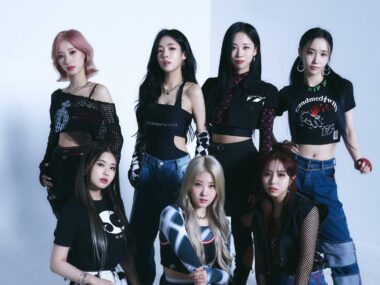OpenAI CEO Sam Altman has a bold vision for the future of ChatGPT. One where it functions not just as a chatbot, but as a deeply integrated, all-knowing assistant. In a recent conversation, Altman laid out the concept of a “trillion-token context” AI. A model that could take in and reason over every email, conversation, book, and piece of data you’ve ever encountered.
Yes, you read that right. Scary, isn’t it?
His goal isn’t just smarter search. It’s a complete rethinking of what AI can be in daily life.
But as we move closer to this future, we’re left with a pressing question: Should we trust one AI to know everything about us?
From Chatbot to Life Companion
Altman breaks down current usage of ChatGPT into generational trends: older users replace Google, twenty-and thirtysomethings treat it like a life coach, and students use it like an operating system.
That last phrase, “operating system”, might sound like a stretch, but it’s already happening. College students are uploading syllabi, connecting calendar tools, referencing past files, and using ChatGPT to organize the complexity of their lives.
In Altman’s ideal future, this will become the norm. Imagine an AI that not only knows your schedule but books your oil change before you realize you’re overdue, orders groceries based on past habits, and plans your travel with zero prompting.
This isn’t sci-fi. It’s very real, and rapidly approaching.
The Trillion-Token Dream
Altman describes the “platonic ideal” as a small reasoning model capable of operating on a massive, ever-growing dataset: your entire life, growing in real-time. No retraining needed. No customized weights. Just one model that learns everything from your context and keeps learning.
This level of persistent, personalized awareness is the next frontier of AI development. And it aligns with a broader industry shift toward AI agents, autonomous programs that can take action, not just respond to prompts.
The goal? A world where AI doesn’t just answer your questions, It anticipates your needs.
But Can We Trust It?
This future, while exciting and scary, brings serious concerns.
- Data Privacy: Do we really want one company to have access to every corner of our digital lives? Centralizing that much information creates enormous risks. Not just from misuse, but from the sheer scale of what could be lost if the data were ever breached. Or sold.
- Corporate Behavior: Tech giants don’t exactly have clean records. Google’s anticompetitive practices remind us that profit often wins over ethics. If AI becomes our operating system, who’s watching the companies that build and manage these tools?
- Bias & Manipulation: Models can be politically shaped, censored, or even dangerous. Chinese bots operate under censorship. xAI’s Grok has generated harmful statements. If an AI holds our trust, but can be influenced, or simply make things up, the consequences go far beyond inconvenience.
- Security & Integration: If a person uses Gmail, will Google allow seamless integration with ChatGPT, or wall off its data to keep competitors out? And what happens when multiple AIs interact? Will they cooperate or compete?
We’ve Imagined This Future Before
The idea of an all-knowing assistant isn’t new. Science fiction has explored it for decades.
In Star Trek, the ship’s computer knows where everyone is at all times. In The Jetsons, their robot maid learns everything after entering the household. In Mass Effect, crimes are investigated by pulling digital records because AI systems know what happened.
These worlds aren’t utopias. Mistakes happen. Systems fail. But they function because humans, often highly trained ones, are there to guide the technology.
The Path Forward: Integration With Caution
We’re heading into messy territory. Altman’s vision may become reality, but the timeline, and the risks, are murky. What happens when everything you’ve ever done is accessible in one system? What happens if it’s hacked? Or subpoenaed? Or sold?
Still, pretending AI isn’t coming is a waste of time. It’s already here. The smarter move is to engage with its development before companies lock in systems without ethical, legal, and security guardrails.
Don’t Fight the Future. Shape It
Sam Altman’s vision of a fully personalized, context-aware ChatGPT is compelling. But it also demands caution. This isn’t just about innovation. It’s about who controls it, how it’s used, and whether we can trust it with the most intimate details of our lives.
The future isn’t just about smarter AI. It’s about smarter choices. From developers, regulators, and all of us. If we want AI to work for us, we have to shape it before it shapes us.






